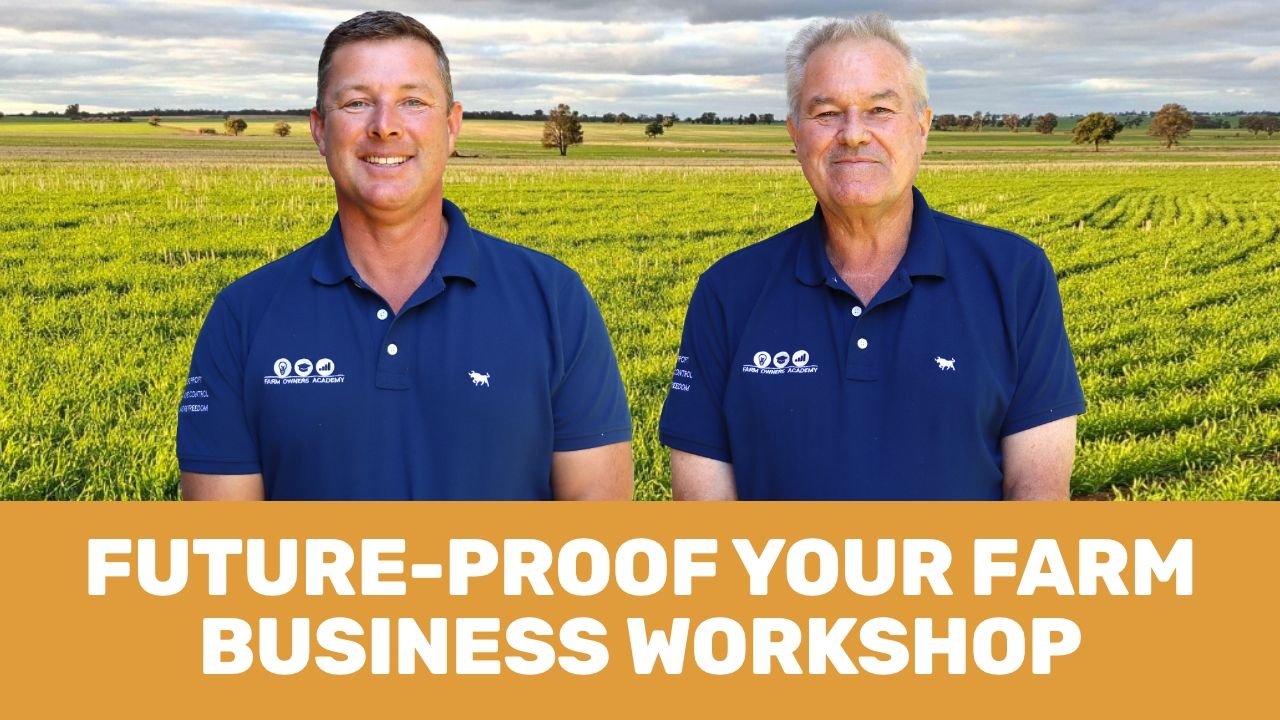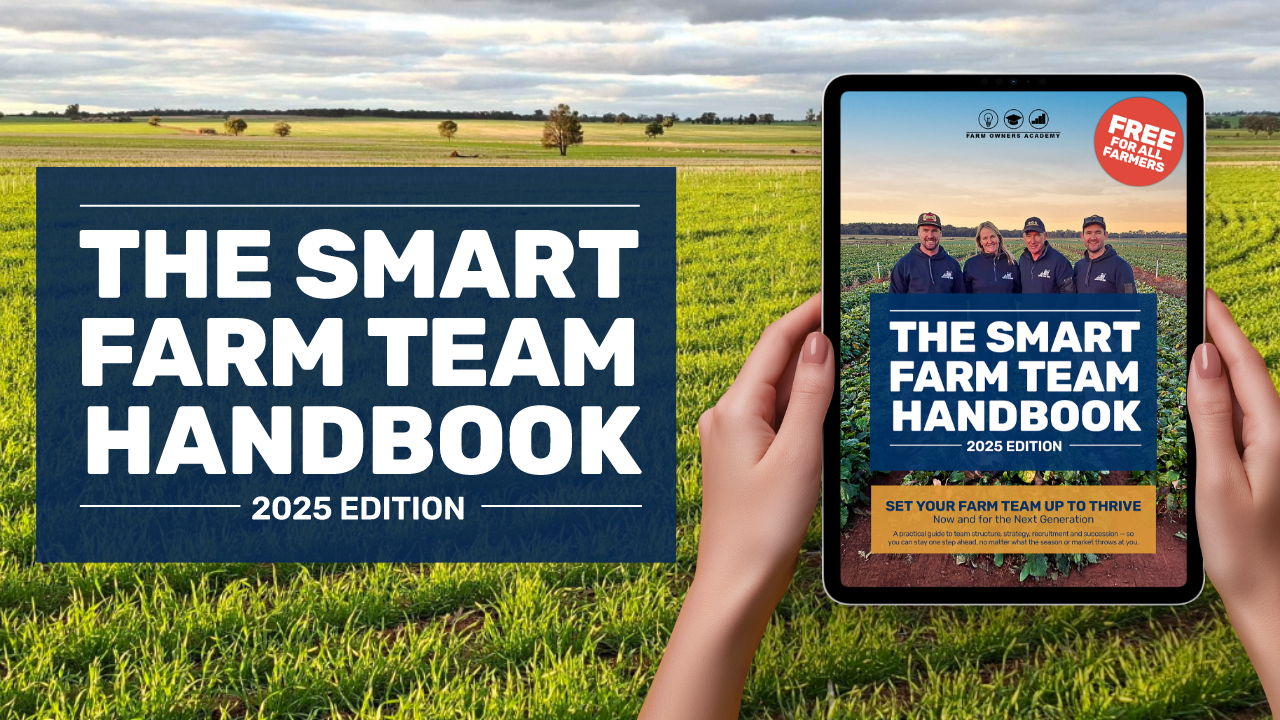Why Is It So Difficult to Make a Change Even When We Know It Will Improve Our Lives and Businesses?
Jul 25, 2024
Here at Farm Owners Academy, our Platinum Mastermind members often take part in ‘accountability’ challenges throughout the year.
An accountability challenge encourages individuals or groups to stay focused, motivated, and committed to their goals. This involves setting specific targets, tracking progress, and holding participants responsible for their actions or inaction.
Despite our best intentions, it's easy to lose momentum and slip back into old habits, leaving us feeling disappointed or discouraged. So, why is it so difficult to make a change, even when we know it will improve our lives and businesses?
As an Accountability Coach, I think about this a lot. Why do some members find it easy to implement changes while others struggle? For me, it helps to understand the "science" behind this.
Our brains natural tendency is to form habits. Repeated thoughts or actions create pathways in our brains, making it easier to continue those habits. Plus, our bodies release chemicals that reinforce these habits, even if they're not beneficial. Change will be uncomfortable, but that’s okay!
So, how do we break free from these old patterns?
The short answer is, we need to practice doing things differently to normal – learn new things, try new things, and train our brains to create new pathways and get some new chemicals pumping through your body.
- Know the Rewards: Understand why you want to make the change and how it will benefit you. This knowledge can provide motivation and keep you focused. While knowing the benefits is often not enough on its own, it is an important foundational step.
- Mind Your Self-Talk: Pay attention to your inner dialogue about change. Is the voice inside your head mulling over how difficult, costly, and time-consuming this will be? Instead, focus on the idea of change being rewarding, fun and easy, and feel the emotions that go with this. Replace judgmental thoughts with positive affirmations.
- Start Small: This is an important point. Take small, manageable steps towards your goal. This makes it easier to build momentum and create new habits over time. You need to find things that are easy to do as you start your journey. For example, in "Tiny Habits," BJ Fogg starts with flossing just one tooth.
- Find a Trigger: Identify a cue or reminder to prompt you to take action. This might mean setting an alarm or doing the task right after your morning coffee.
- Repeat: Consistency is key. Do the action immediately after the trigger every time! Your brain loves repetition.
- Celebrate: Always celebrate immediately after the action. This can be as simple as saying something positive to yourself like “Awesome work!” The aim here is to create an association between the action and the reward of feeling good!
Some things to note:
- The easier a behaviour is to do, the more likely it will become a habit. So, find the right actions for you. The biggest mistake we tend to make is trying to change too much too soon. You can tackle the harder behaviours once your brain and body have become used to the idea that change is now the new normal in your life.
- Set your environment up to make the action easy, e.g. have your journal near where you drink your morning coffee.
- We often judge ourselves harshly when we "fail". Remember, we don’t change by making ourselves feel bad. So be gentle and patient with yourself and be ready to distract yourself from any judgemental thoughts. Let go of the past and focus on how it will feel when you do it successfully next time.
- The challenge in all of this is that results don’t come quickly; because of this, it can be easy to slide back into our previous routines. It’s about being prepared to hang in there, stick to your “system”, and know that the results will come. The benefit you will gain over months and years can be enormous. As James Clear says in his book Atomic Habits, “If you can get 1 per cent better each day for one year, you’ll end up thirty-seven times better by the time you’re done.”
Remember, change takes time and effort, but the results are worth it. If you've struggled with breaking an old habit, don't be too hard on yourself. Every step forward is progress.
So, if you have started something, but not completed it, instead of beating yourself up, congratulate yourself just for starting! As Andrew Roberts says, "You can't steer a parked car!"
You started, you found out what didn't work, and now all you need to do is adjust and continue to move forward.
Below are some great resources to help you on your journey:
- Tiny Habits by BJ Fogg
- Atomic Habits by James Clear
- Breaking The Habit of Being Yourself by Dr Joe Dispenza, and of course,
- The 5am Club by Robin Sharma.
To sum it up, here are three quotes from "The 5am Club" that I find particularly inspiring:
- “Small daily improvements, when done consistently over time, lead to stunning results.”
- “When you feel like surrendering, continue. Triumph loves the relentless.”
- “To have the results the top 5% of producers have, you must start doing what 95% of people are unwilling to do.”
Wishing you all a productive and fulfilling week ahead!
Cheryl Freak
Accountability Coach








